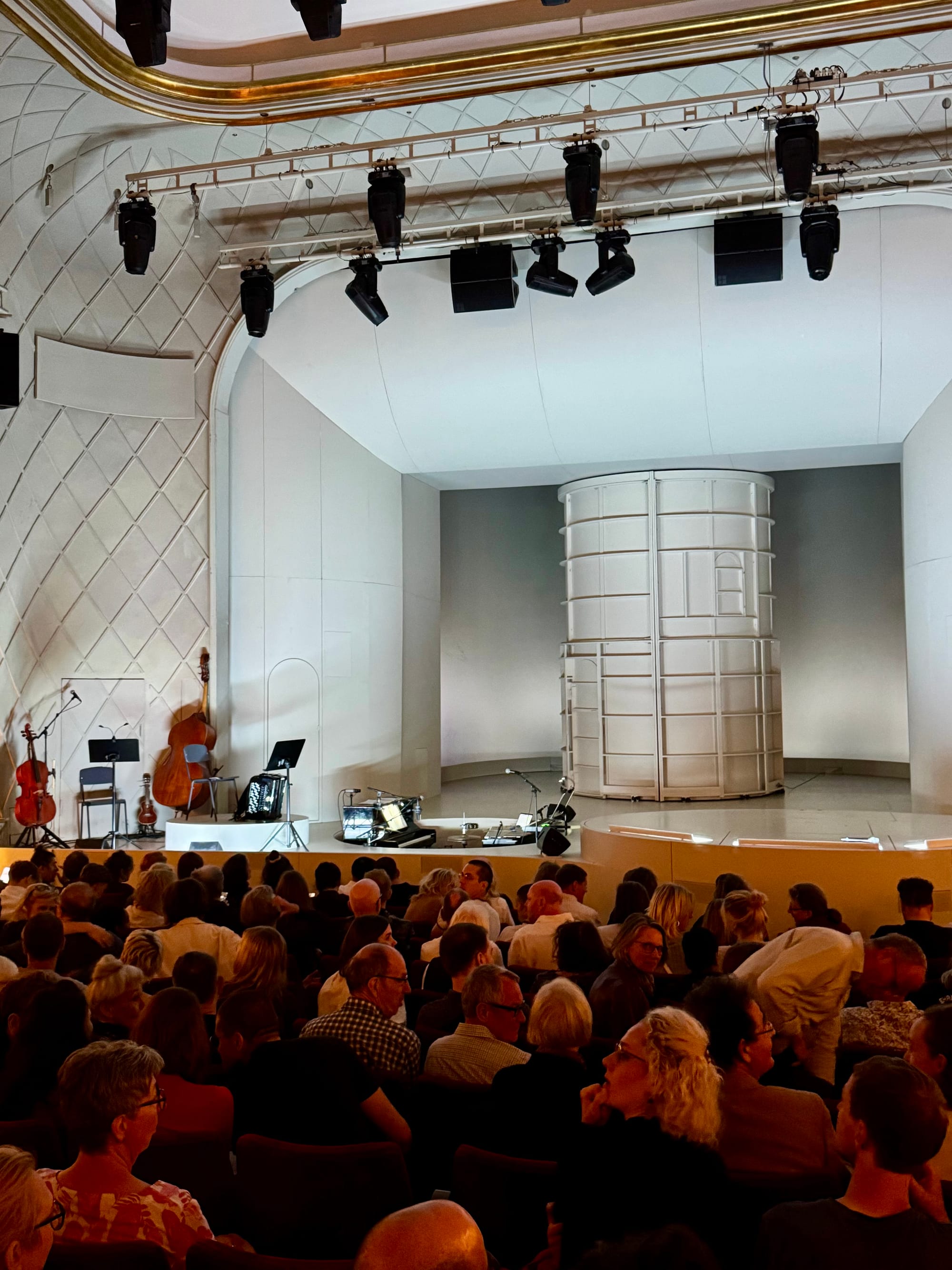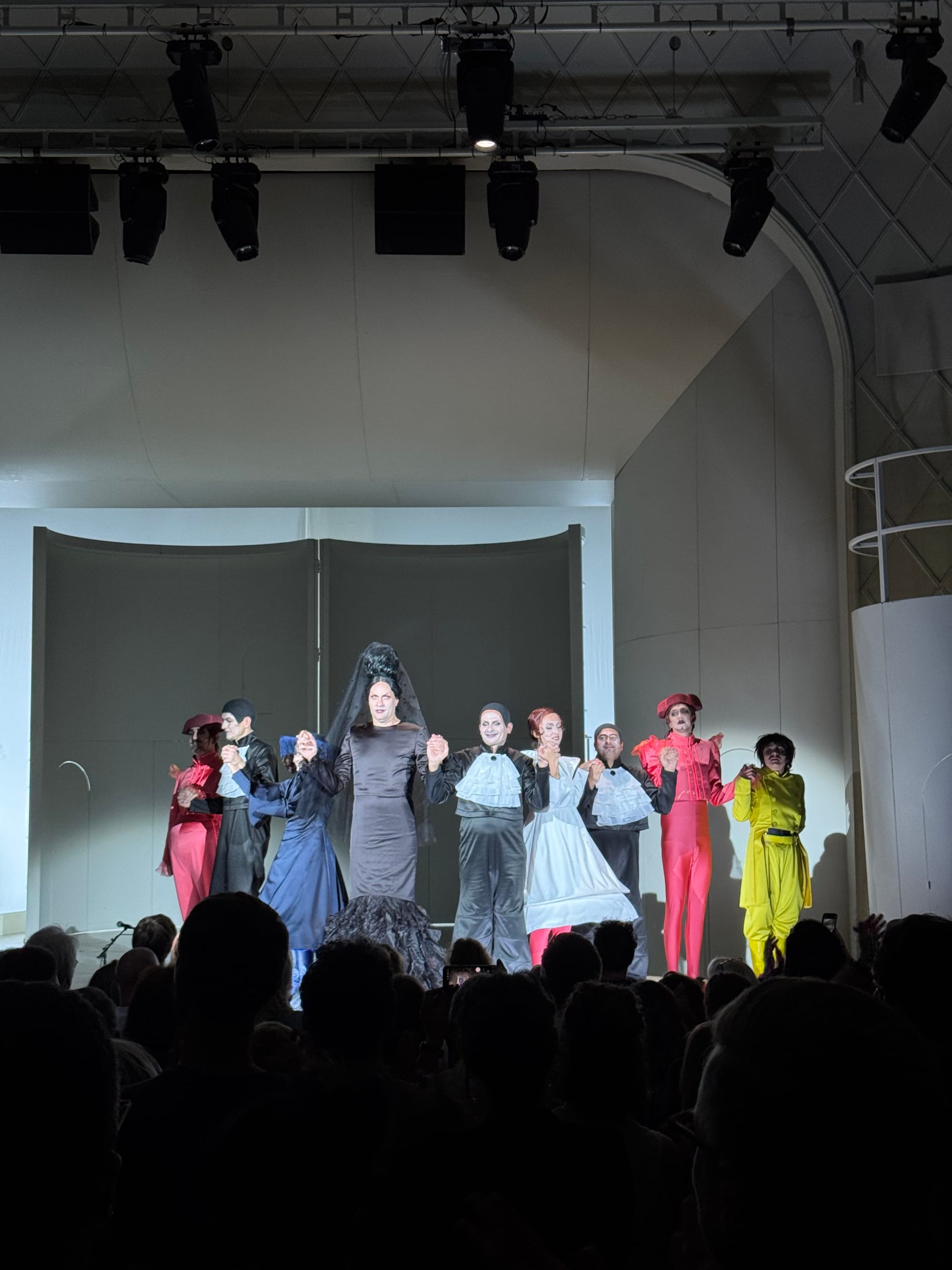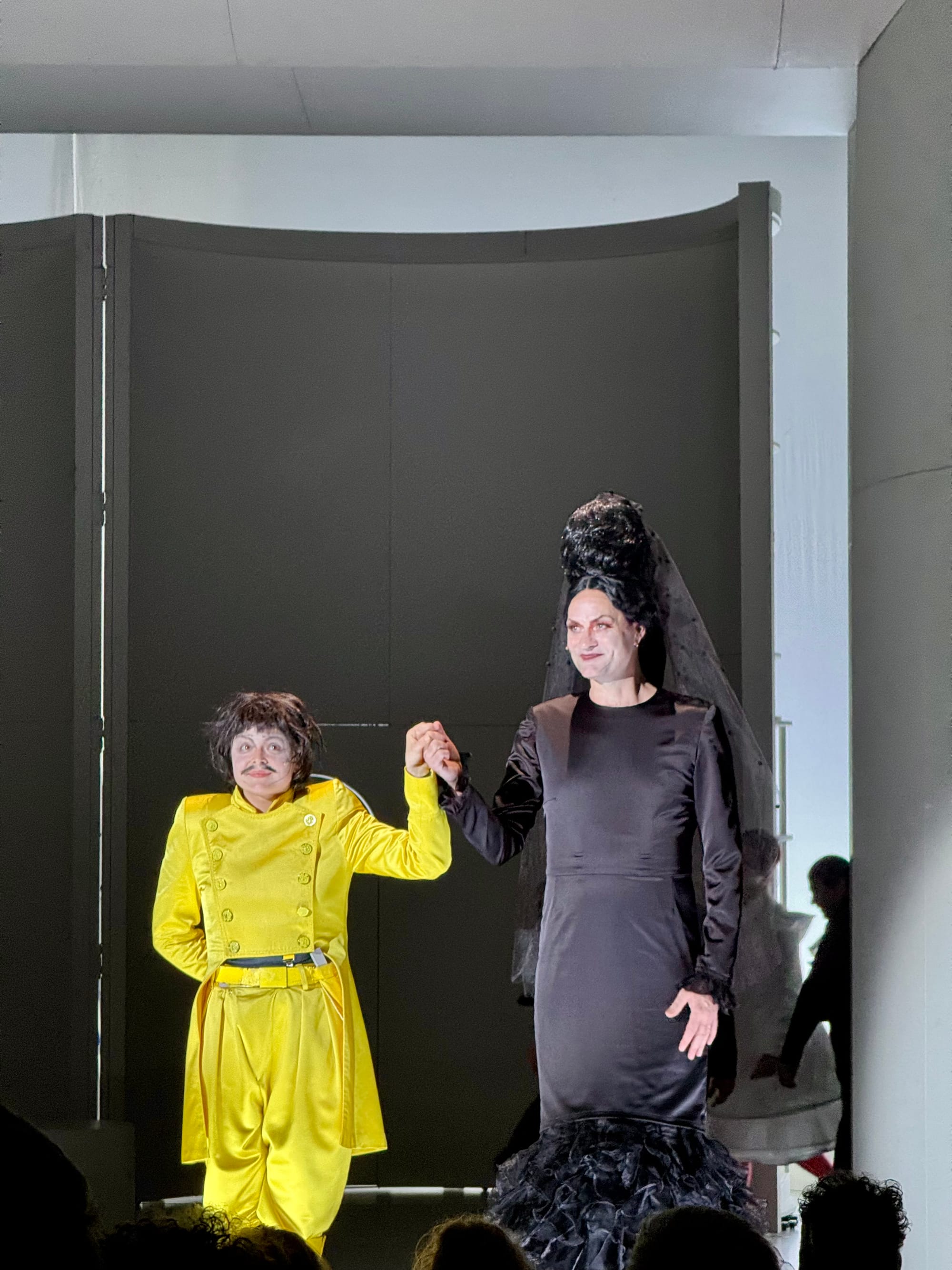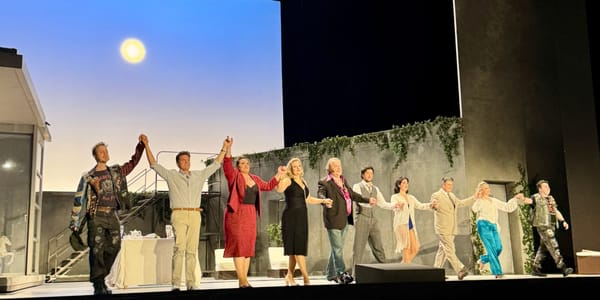Carmen at Maxim Gorki Theater
A bold, stripped-back Carmen that reclaims, reframes, and reimagines—queer, critical, and culturally aware in all the ways opera should be today.
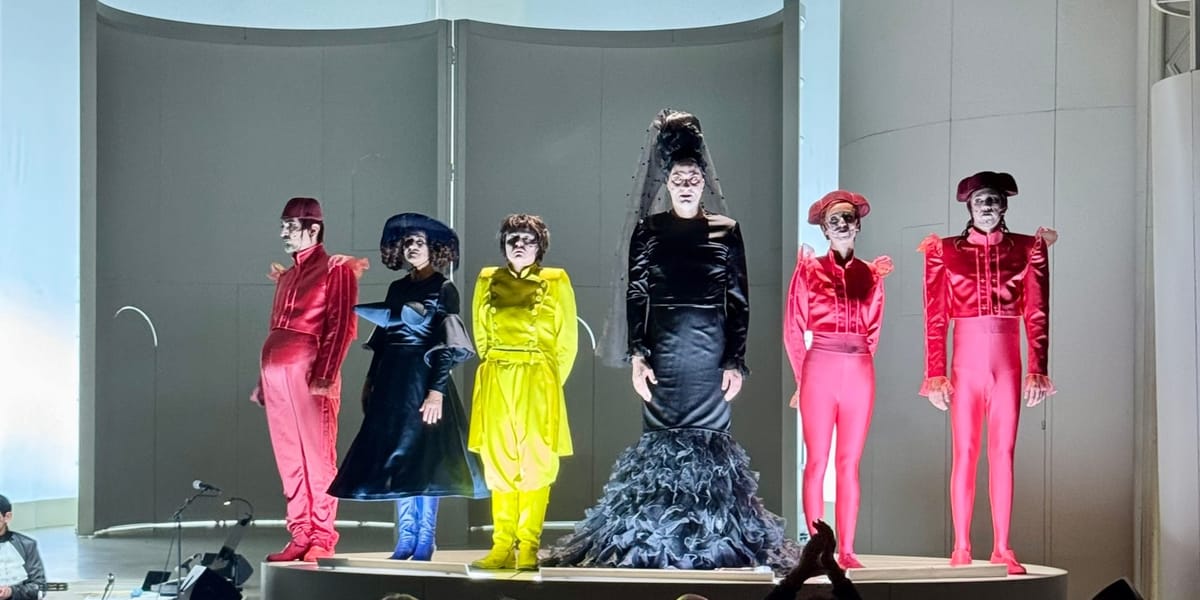
🎭 Carmen
🎶 Jens Dohle, 2025, after Georges Bizet, 1875
💭 Christian Weise, 2025
🏛️ Maxim Gorki Theater Berlin
🗓️ 11.07.2025
“I threaten the patriarchal order—and for that, I am punished.”
Carmen is everywhere. One of the most frequently played operas in the world, instantly recognizable even to those who rarely set foot in an opera house. Its melodies have long entered pop culture’s bloodstream. And while it caused quite the scandal 150 years ago—depicting factory workers, criminals, and prostitutes on bourgeois stages—it now carries a very different kind of weight. Today, we come to it with 150 years of social advancement (and regression)—and that means we see it with very different eyes.
Because at its core, Carmen is also full of deeply problematic tropes: misogyny, patriarchy, and anti-Romani stereotypes. And many productions still perpetuate these without much reflection. Which is exactly why this intimate staging at Berlin’s Maxim Gorki Theater stands out. It asks: what would it mean to do Carmen justice—justice to Carmen as a woman, as a Romani person, as a character with agency?
There’s a quiet radicalism in how this production goes about answering that question. The music stays remarkably close to Bizet’s original—just three musicians swapping between piano, cello, bass, percussion, and accordion (a culturally significant nod to Romani musical traditions). The libretto, translated into German, is largely untouched. The plot remains intact. And yet, through a few well-placed interventions, everything feels different.
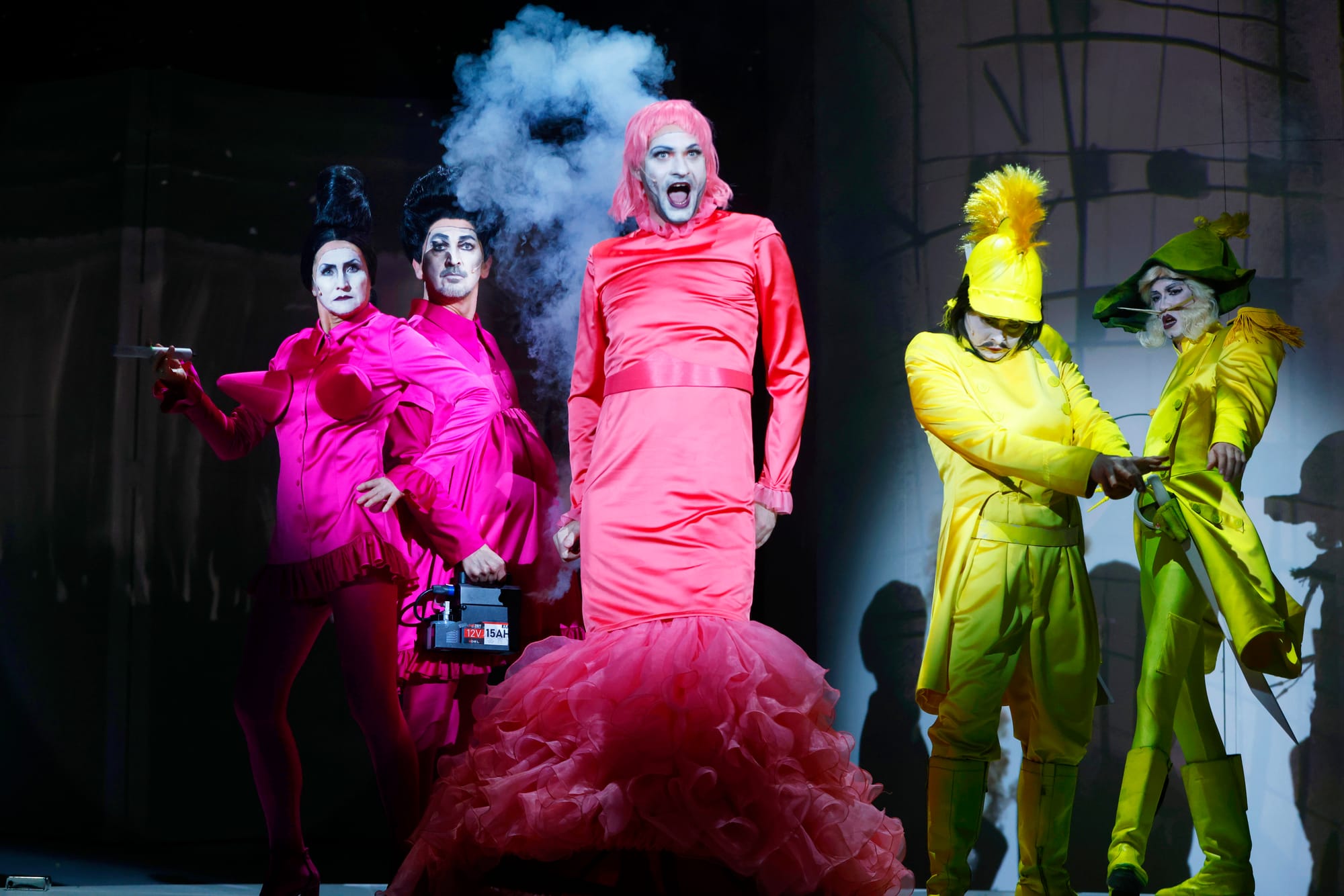
Most notably, there’s a sense of reclamation at play. Carmen is portrayed by a Romani performer, and you can feel how seriously the production takes the responsibility of representation. Carmen is written and played with a kind of dignity and clarity—self-possessed, opinionated, powerful in the most self-empowered sense of the word. She says no. She has agency. She knows how to use it.
The intervening monologues—often in English, occasionally trilingual—offer moments of introspection. In one instance, Carmen reflects on modern love, on needs vs. desires, compatibility, open relationships, love triangles and quadrilaterals. The whole idea of “love at first sight” is gently pulled apart. We live in a world with words like limerence and love bombing now; we talk about partnership, equality, dating at eye level. And this Carmen feels aware of that. It’s not just a revision—it’s a conversation across centuries.
There’s also a queer layer threaded throughout, largely through gender-bent casting. Carmen is played by someone who reads as a man; Don José by someone who appears to be a woman. But the point isn’t just to invert binaries. This queerness acts as a counterweight to the opera’s rigid gender expectations. Sure, Carmen and Don José become characters in drag—but also symbols of resistance to the patriarchal system that defines their world. There’s voguing in the choreography, too, and glimpses of queer joy, defiance, and performance are woven into the texture of the piece.
The staging is minimalist but impactful. A white set, constantly brought to life with projections—snippets of the libretto, staging directions, location cues, hand-drawn animations. It all feels intimate, tactile, like someone flipping through a personal sketchbook or scribbled score. The characters, too, are drawn in bold strokes. Michaela is a parody of purity, all floor-length blonde ponytails and an angelic white gown. Don José is fragile, insecure, emotionally erratic. The sergeant is a cartoon of macho cruelty. Everyone’s a caricature—except for Carmen. She alone is treated with seriousness and nuance, her clarity amplified by the chaos around her.
There’s camp here. There’s satire. The actors move like Disney animatronics at times—deliberately staged, whimsical, exaggerated. But it’s never cynical. It’s sharp, pointed, and very funny in places. And it serves a purpose: by making the rest of the cast look absurd, the production allows this Carmen to emerge as the only character who really makes sense.
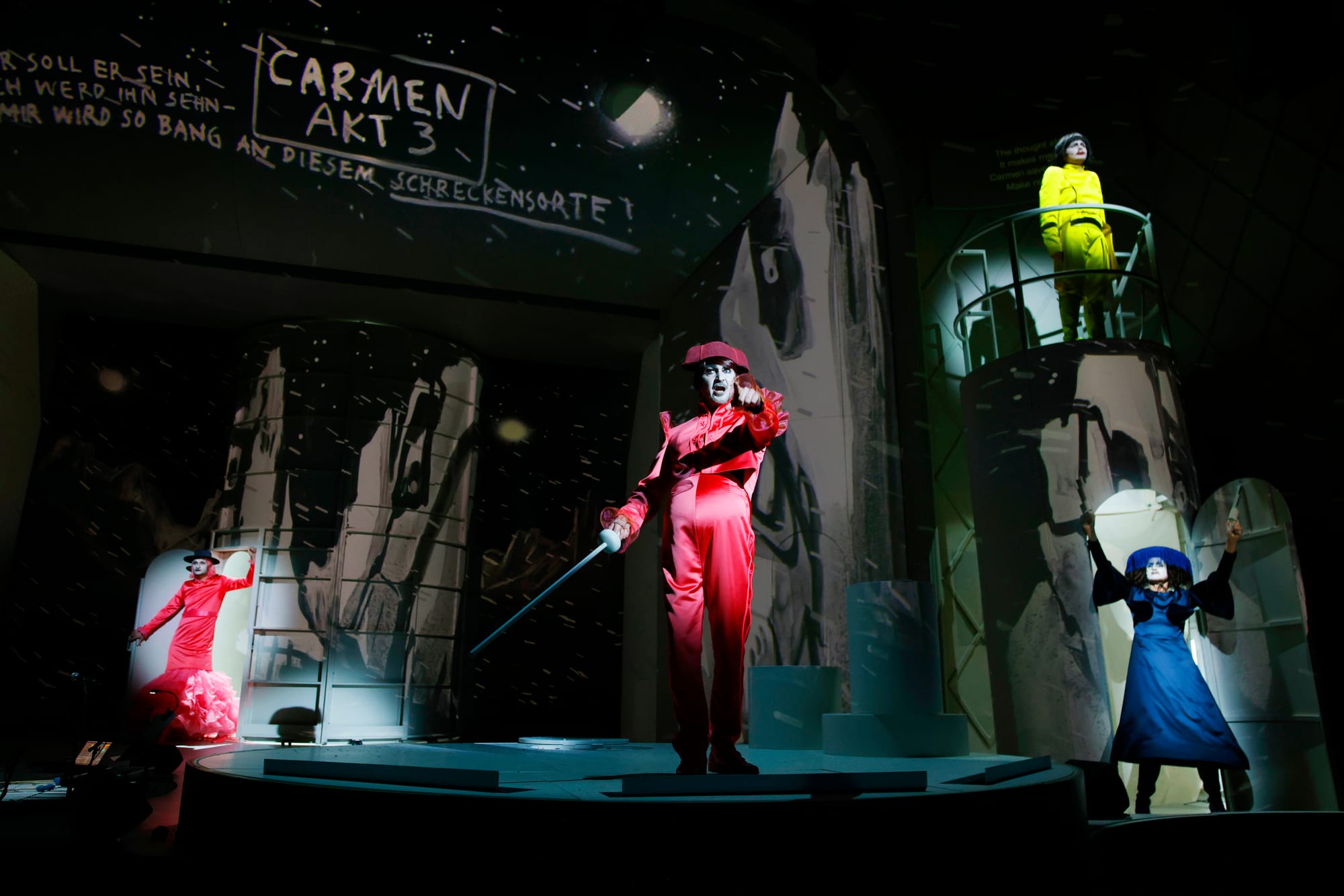
And that, really, is the point. This isn’t about making fun of Carmen as a piece, or tearing opera down. It’s about asking what it takes to make these works—some of which are centuries old—resonate with audiences now. Because here’s the thing: this form of artistic abstraction works. And I wouldn’t mind if more operas were abstracted like this to better fit a modern cultural context and a contemporary audience.
Obviously, the Staatsoper won't stage a Carmen like this anytime soon (though, after seeing the new production of Die schweigsame Frau just last week, maybe it should). In fact, I think anyone producing opera today would benefit from taking a page out of this production’s playbook and asking: What do we need to do to make an opera make sense in the world we live in? How do we explain character motivations that no longer align with modern psychology? How do we reframe stories where female agency is punished and patriarchy goes unquestioned? And how do we give audiences tools to experience these stories without having to sidestep the uncomfortable parts?
Some houses already do this—Die Zauberflöte is a good example, where problematic references to race or slavery are consciously edited or contextualized. It’s a balancing act: between historical integrity and cultural responsibility. But when productions don’t engage in that balancing act at all—when they let the misogyny, racism, or anti-queerness of the libretto play out unfiltered—it becomes hard, at least for me, to fully enjoy what’s on stage. The dissonance between the beauty of the music and the ugliness of the message pulls me out—and frankly, it bores me, too, like lazy stand-up comedy that relies too heavily on outdated humor to make a point.
So no, this wasn’t a big, glossy Carmen with a full orchestra and lavish sets. But it was clever. It was moving. It was relevant. And in doing what so many productions fail to do—critically reimagine rather than blindly reproduce—it gave us something better: a Carmen that actually makes sense today.
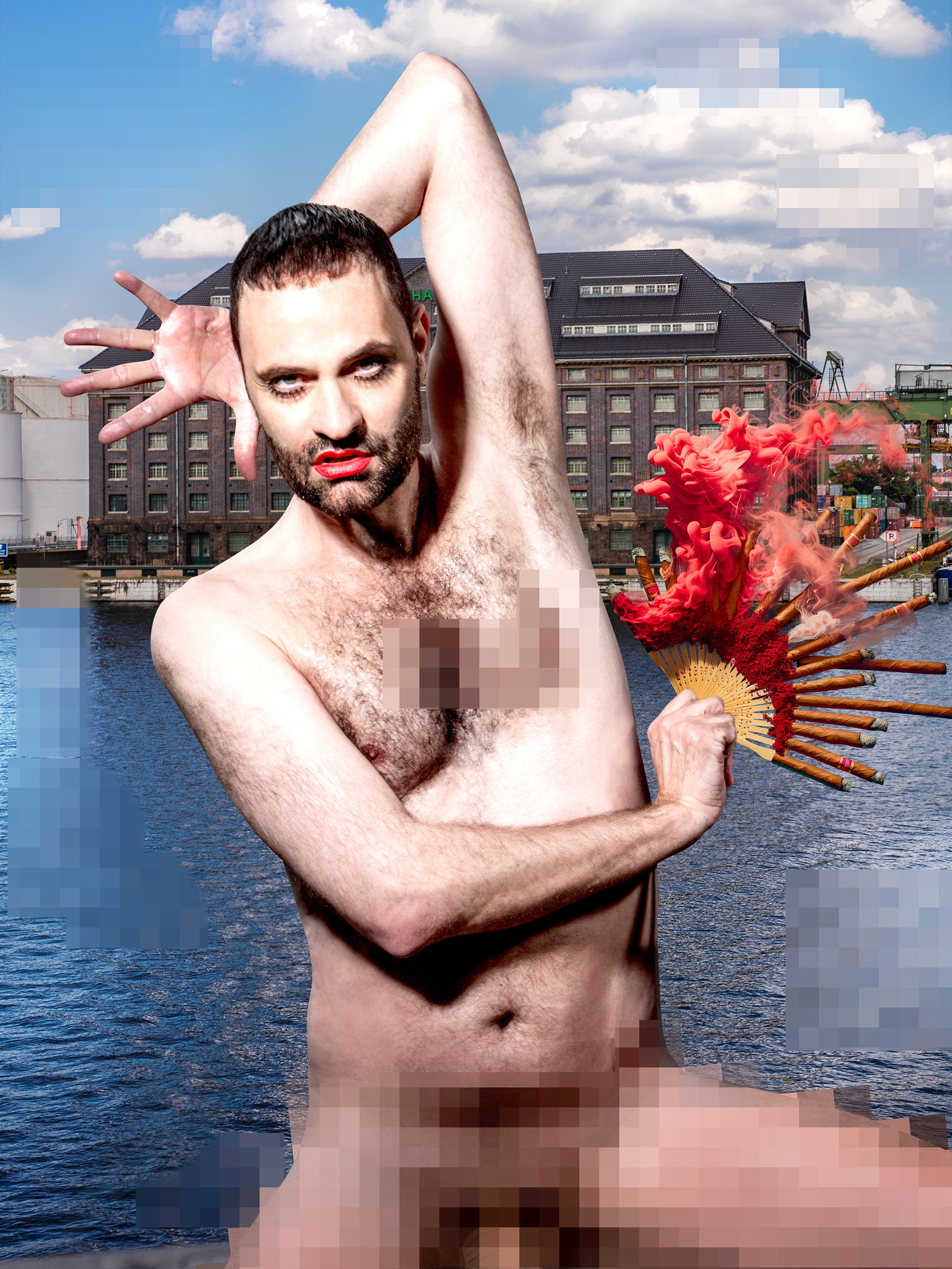
Cast
Based on Georges Bizet
And Henri Meilhac, Ludovic Halévy
With texts by Riah Knight, Lindy Larsson
Direction Christian Weise
Arrangement & Musical Direction Jens Dohle
Stage design Julia Oschatz, Felix Remme
Costumes Lane Schäfer
Music/Arrangement Jens Dohle
Choreography Rônni Maciel
Live music Jens Dohle, Dejan Jovanović
Lighting design Connor Dreibelbis
And Steffen Illner
Vocal Coach Turan von Arnim
Dramaturgy Endre Malcolm Holéczy, Maria Viktoria Linke
Dramaturgical Support Riah Knight
Marc Benner
Via Jikeli
Riah Knight
Lindy Larsson
Catherine Stoyan
Till Wonka
